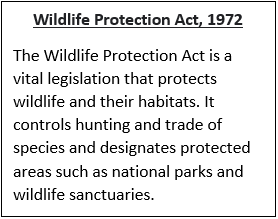You're all caught up—no notifications available.
Explore All Exams at KGS

All Exams
Explore All Exams at KGS
Khan Sir Courses
Geography I Polity I History | World Map I Indian Map I Economics I Biology
UPSC & State PSC
UPSC I BPSC I UP-PSC I MP-PSC
State Exams
UP I Bihar I MP | Rajasthan
NEET | JEE | CUET | Boards
NEET | JEE | CUET | Boards
Defence Exams
NDA I CDS I CAPF I AFCAT I SSB I Agniveer
Police Exams
UP SI | Bihar SI | Delhi Police | UP Constable
SSC Exams
CGL I CPO I CHSL I MTS I SSC GD I Delhi Police
Foundation Courses
Physics I Chemistry I Biology I History I Geography I Polity I NCERT I Math I English | Map I Reasoning
Railway Exams
RRB | RPF
Teaching Exams
TET | Teaching | UGC
Banking Exams
SBI | RBI | IBPS
Engineering Exams
Civil | Electrical | Mechanical
UGC NET
UGC NET/JRF
Current Affairs provides you with the best compilation of the Daily Current Affairs taking place across the globe: National, International, Sports, Science and Technology, Banking, Economy, Agreement, Appointments, Ranks, and Report and General Studies

SYLLABUS
GS-3: Conservation, Environmental Pollution and Degradation, Environmental Impact Assessment.
Context: Kerala has become the first Indian State to pass a bill amending the Central Wildlife (Protection) Act, 1972, to address rising human-animal conflicts.
More on the News
• The Kerala Legislative Assembly passed the Wild Life Protection (Kerala Amendment) Bill, 2025 on October 8, to manage increasing incidents of human-wildlife conflict across the State.
• The Bill will become law only after it receives the President of India’s assent, as it amends a Central legislation placed under the Concurrent List.
Concurrent List Entry 17B: "Protection of wild animals and birds".The 42nd Amendment Act of 1976 was enacted to transfer this subject, along with "Forests" (Entry 17A), from the State List to the Concurrent List.
• Human-animal conflicts in Kerala have intensified, particularly due to wild boar crop raids and fatal elephant encounters, which have caused distress in rural and forest-fringe regions.
The Centre retains authority to declare species as vermin under Section 62 of the Wildlife (Protection) Act, a safeguard against indiscriminate killing.

Key Provisions of the Bill
• The Bill empowers the Chief Wildlife Warden to order the shooting, tranquilisation, capture, or translocation of wild animals that attack humans or stray into residential or public areas.
• It authorises the Warden to take measures to control wild animal populations by methods other than killing, allowing more flexible and context-based responses.
• The Bill allows the State Government to declare any wild animal listed under Schedule II of the Central Wildlife (Protection) Act as vermin for limited periods, a power previously held only by the Union Government.
• The amendment seeks to provide faster on-ground decisions to protect human lives while maintaining ecological balance.
Federal and Legal Dimensions
• Kerala’s amendment challenges the existing Centre-State balance in environmental governance, as wildlife protection is a Concurrent List subject.
• The Bill represents an attempt by the State to gain greater autonomy in responding to local ecological challenges that the Central mechanisms have failed to address swiftly.
• Critics caution that devolving powers must not weaken national conservation safeguards under the Wildlife Protection Act, 1972, or India’s international commitments.
• Kerala’s amendment signals a federal shift in conservation policy, testing how States can act within national frameworks while responding to local ecological realities.
• The development may prompt other States facing conflict issues to seek similar powers, potentially reshaping India’s wildlife governance model.
UPSC Mains Practice Question
Q. The Wildlife Protection (Kerala Amendment) Bill, 2025 reflects the tension between ecological prudence and federal autonomy in India’s environmental governance. Discuss how such State-level amendments can strengthen or weaken the framework of wildlife conservation in the country.
Source
BarandBench
The Hindu

NCERT Books
Resources
We love learning. Through our innovative solutions, we encourage ourselves, our teams, and our Students to grow. We welcome and look for diverse perspectives and opinions because they enhance our decisions. We strive to understand the big picture and how we contribute to the company’s objectives. We approach challenges with optimism and harness the power of teamwork to accomplish our goals. These aren’t just pretty words to post on the office wall. This is who we are. It’s how we work. And it’s how we approach every interaction with each other and our Students.
Come with an open mind, hungry to learn, and you’ll experience unmatched personal and professional growth, a world of different backgrounds and perspectives, and the freedom to be you—every day. We strive to build and sustain diverse teams and foster a culture of belonging. Creating an inclusive environment where every students feels welcome, appreciated, and heard gives us something to feel (really) good about.
Get Free academic Counseling & Course Details
